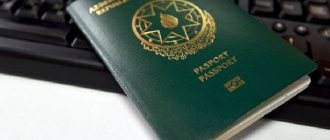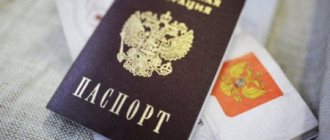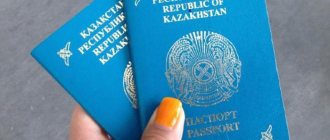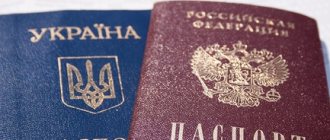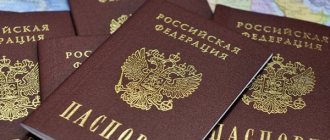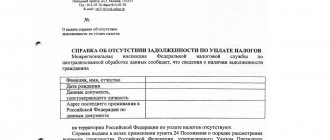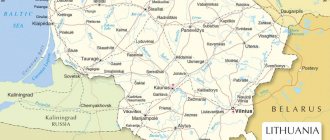Many foreigners, in particular residents of the CIS, are interested in how to obtain Russian citizenship. Russians, in turn, must know the basic constitutional principles of citizenship, which are described in the main law of the country - the Constitution of December 12, 1993. This is important for a thorough understanding of their legal status.
With the gradual development of our country after the collapse of the USSR, the institution of national citizenship underwent noticeable changes: Law No. 1948-1 of November 28, 1991 evolved into Federal Law No. 62 “On Citizenship”. It was in this document dated May 31, 2002 that stricter norms, principles and rules for acquiring status were established. Today, this law is in force with amendments dated November 11, 2003, which provide for a simplified legal mechanism for acquiring Russian status for residents of the CIS.
The concept of the essence and principles of Russian citizenship
According to Art. 3 of the Federal Law, citizenship recognizes the connection of human rights, which manifests itself in the form of bilateral obligations of a person and the Russian Federation. During the times of the Soviet Union, the essence of this term was reduced to the subordination of a person’s will and his actions to sovereign power both on the territory of the USSR and beyond its borders. Thus, citizens were at the bottom of the political hierarchy. Nowadays, this approach has been replaced by a more democratic one, presupposing freedom and equality both among themselves and with the country as a subject of economic relations.
What is citizenship?
In accordance with the current legislation, the main constitutional principles or signs of citizenship of the Russian Federation are:
- unity of people;
- equality;
- the impossibility of depriving a person of citizenship, nationality and deporting a person outside the Russian Federation without special grounds enshrined in the law;
- permanent status even when outside the country’s territory;
- the possibility of receiving by honored foreign citizens;
- admissibility of dual citizenship;
- equality of universal human rights for foreign and Russian citizens.
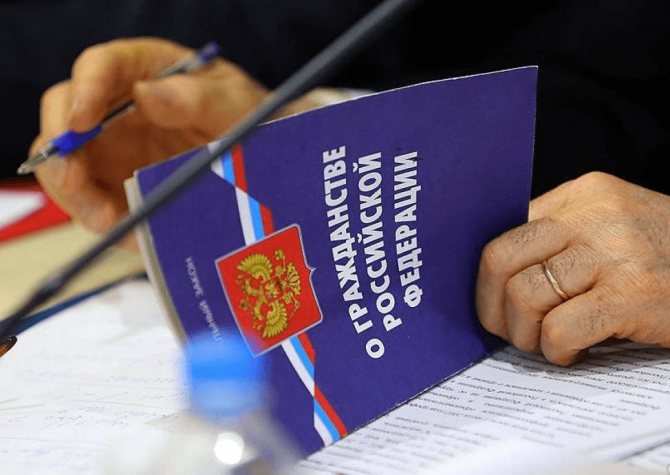
Federal Law of May 31, 2002
Concept and essence
There are several definitions of the term in the legal literature. Despite the difference in wording, the essence of the definition is the same: citizenship is a legal connection between a person and the state , which consists in the existence of mutual responsibility to comply with accepted norms and obligations.
The concept of citizenship and its principles is enshrined in the Constitution of the Russian Federation. The principles of citizenship of the Russian Federation are a set of basic rules, thanks to which the institution of citizenship itself is regulated and conditions are created for the stable existence of the country . An important property of its principles is:
- democracy;
- applicability to all citizens of the country;
- preventing restrictions on the will of each person.
That is why it is necessary to know and understand the meaning of the concept and principles of citizenship not only for foreigners who want to obtain citizenship of another country, but also for those who have never changed it.
All principles are usually divided into:
- are common;
- special.
General principles, which are also constitutional, are enshrined in the Basic Law of the state.
The combination of these principles forms a legal system that guarantees that power belongs to the people, the implementation of democratic norms, and the equal distribution of rights and responsibilities between citizens and governing bodies. They also prohibit persecution based on nationality, religion or language. Special principles regulate the framework for the implementation of basic laws and control methods. Among them are: equality between all bearers of citizenship, freedom of choice, the obligation to protect the interests of citizens who find themselves outside the territory of their country, the impossibility of extraditing their citizens to foreign countries, deprivation of a citizen’s passport only in established cases.
What is the principle of single citizenship?
Grounds and procedure for acquiring Russian citizenship
The principle of single citizenship in accordance with paragraph 1 of Art. 6 of the Constitution is that persons living on the territory of the constituent entities of the Russian Federation, incl. republics must be full citizens of Russia.
Example: residents of Crimea have the same status as those who were originally born on Russian territory.
Note! It does not matter where the citizen lives: if the territory of the subject is within national borders, then the rights and obligations of Russians apply to him.
Thus, the principle of single citizenship presupposes that all citizens of the Russian Federation are equal in their rights and obligations before Russian legislation.
Principles of Russian citizenship
Citizenship of the Russian Federation is a stable legal connection of a person with the Russian Federation, expressed in the totality of their mutual rights, duties and responsibilities. This connection lasts throughout a person’s life, arises from the moment of birth upon acquisition of Russian citizenship and ends with death or loss of citizenship. Citizenship relations cannot be terminated unilaterally.
In general terms, the principles of citizenship are characterized in the legal literature as its fundamental and guiding principles.
The basic principles of citizenship of the Russian Federation are enshrined in Art. 6, 61, 62 of the Constitution of the Russian Federation and are disclosed in more detail in the Federal Law “On Citizenship of the Russian Federation”. Let's look at each of them.
1. The principle of single citizenship (Part 1 of Article 6 of the Constitution) means that every citizen of the republic within the Russian Federation is at the same time a citizen of Russia. A single Russian citizenship may not be the only one (for example, for persons with dual citizenship).
2. The principle of equal citizenship (Part 2 of Article 6 of the Constitution and Clause 2 of Article 4 of the Law on Citizenship) implies that all citizens of Russia are endowed with the same set of constitutional rights and obligations, regardless of the method of acquiring citizenship and the duration of possession of the status “ Russian citizen". Thus, a person who is a citizen of the Russian Federation by birth (for example, a child born on the territory of Russia from Russian parents) has the same legal status as a foreigner who was granted Russian citizenship for special services to the Russian Federation.
3. Citizenship of the Russian Federation is extraterritorial (residence or stay of a citizen outside the Russian Federation does not terminate his citizenship) – clause 3 of Art. 4 of the Citizenship Law. A citizen of the Russian Federation has the right to live in the place he chooses. Of course, the state is interested in its citizens living and working on the territory of the Russian Federation.
4. Russian citizenship is free . (Part 3 of Article 6 of the Constitution) A citizen of the Russian Federation has the right to change his citizenship by renouncing Russian citizenship. (Clause 4 of Article 4 of the Law on Citizenship) fully complies with Art. 15 of the Universal Declaration of Human Rights, which states: “No one shall be arbitrarily deprived of his nationality or of the right to change his nationality.”
5. The Constitution of the Russian Federation and the Law on Citizenship prohibit depriving a person of Russian Federation citizenship . This prohibition is absolute and applies to persons convicted of state crimes.
6. The basis for changing citizenship is the will of the person. The nature of acquisition and loss of citizenship is automatically excluded. Marriage with a foreign citizen or divorce, change of citizenship by parents of children whose age allows them to reasonably assess what is happening (from 14 years old), does not entail the mandatory granting or loss of Russian citizenship. Only a child born from a citizen of the Russian Federation automatically receives Russian citizenship, and young children (under 14 years old) automatically follow them when the citizenship of their parents changes.
7. The principle of protection and patronage of Russian citizens located outside the Russian Federation (Article 7 of the Law on Citizenship) means that the state recognizes its obligations to the citizen not only on its territory, but also beyond its borders due to the extraterritorial nature of the relationship between the citizen and the state.
8. A citizen of the Russian Federation cannot be expelled from its borders or extradited to another state (Article 63 of the Constitution). For crimes committed outside the Russian Federation, a citizen of the Russian Federation is subject to criminal liability under its laws (if acts committed abroad are also considered crimes in the Russian Federation). However, a citizen of the Russian Federation can also bear administrative responsibility abroad.
9. Russia encourages the acquisition of citizenship by stateless persons living on the territory of the Russian Federation (in this case, it is necessary to prove the fact of “statelessness”, like foreign citizenship). Obtaining citizenship by a stateless person better ensures the protection of his rights.
What does the principle of equal citizenship mean?
Methods of acquiring citizenship
The principle of equality of citizenship presupposes the inadmissibility of a “preferential” regime for some citizens, as well as their acquisition of a special status in the event of a long stay in the country. This, in turn, means that any person who crossed the borders of the Russian Federation from the first day is endowed with responsibilities and rights on an equal basis with Russians.
Example. The laws and rules for staying in the country apply to both residents of Moscow and people living in Kazan, located on the territory of the Republic of Tatarstan.
The concept of “institution of citizenship”
Definition 1
The Institute of Citizenship is a specific state system that regulates all issues related to the presence on the territory of a particular country of a person with the legal status of “citizen of the country.”
Each state has its own regulations governing the registration of citizenship, as well as other legal actions in relation to citizens of their country.
Institute of Citizenship in the Russian Federation We have already completed an essay
Statehood of Russia.
it is regulated and regulated in more detail by the Federal Law and the Constitution of the Russian Federation “On Citizenship of the Russian Federation.” On this topic, we have already completed course work
on the Constitutional and legal regulation of citizenship of the Russian Federation. in more detail, which came into force on May 31, 2002 (with all amendments made later).
Finished works on a similar topic
- Coursework Institute of Citizenship 450 rub.
- Abstract Institute of Citizenship 260 rub.
- Test work Institute of Citizenship 220 rub.
Receive completed work or specialist advice on your educational project Find out the cost
Citizenship in the Russian Federation is a fixed legal connection between an individual and the state, which is expressed by a set of mutual obligations and rights. Citizenship is the legal status of the population. Citizenship reflects a stable legal and legal connection between the state and the individual, which is expressed in a set of mutual rights and obligations based on recognition and respect for human rights and freedoms.
An individual who has Russian citizenship, which is confirmed by the appropriate document (passport, birth certificate), has the status of a citizen of the Russian Federation. An individual who does not have documents confirming citizenship is equal to the status of a foreigner.
Possession of citizenship is a necessary condition for the full extension to an individual of absolutely all rights and freedoms provided for by law, the mandatory protection of a person by the state not only within the country, but also outside its borders.
Note 1
The regulation of the institution of citizenship occurs in accordance with the norms prescribed in Art. 6 of the Constitution of the Russian Federation We have already completed an essay
The Constitution of the Russian Federation in more detail.
Need advice from a teacher in this subject area? Ask a question to the teacher and get an answer in 15 minutes! Ask a Question
Civil relations do not depend on the fact of residence or presence at a certain moment in the territory of the Russian Federation. These relations form the legal nature of the connection between the state and the person. Citizenship is largely a legal, rather than simply a factual, state.
There are a large number of Russian citizens living permanently outside the Federation. We have already completed coursework
Federation more details. Citizens of other countries also live in our country. Such categories of persons, together with citizens living on the territory of Russia, make up the demographic population of the Russian Federation.
The legal population consists of all citizens of the Russian Federation, regardless of place of residence. Such relations are based on the legal formalization of civil relations and connections based on the content of citizenship.
The law establishes certain grounds relating to citizenship in the Russian Federation:
- any individual can be recognized as a citizen of the country subject to a number of conditions;
- acquisition of civil status or its termination, procedure for resolving such issues;
- the priority of universal human values, which lies in the mutual responsibility of man and the state, which is the basis of civil relations and means the recognition of these subjects as equal in rights and equally obligated to each other.
What are the features of the principle of honorary citizenship
The meaning comes from the previous rule. There are citizens - scientists, artists, valuable personnel and specialists, whose presence on the territory of Russia has a beneficial effect on the country's image on the world stage. In this case, such citizens have benefits for obtaining a new status - the procedure for acquiring Russian status for them follows a simplified procedure.
Example. The famous French actor Gerard Depardieu received the status of a Russian citizen in 2013 after tax reform was carried out in France and the introduction of enslaving conditions for taxation of luxury and income, as well as high exchange rate differences when transferring to an account in foreign banks.
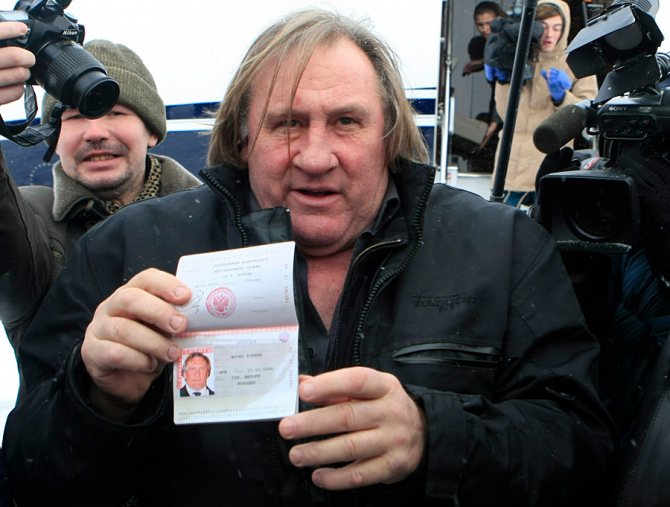
Gerard Depardieu with a Russian passport
What is the principle of preservation of citizenship?
This feature refers to the lack of legislative regulation of the length of stay of Russians abroad, after which they will be deprived of their civil rights. The principle is based on the natural right of a person to choose his place of permanent residence.
Example. Russian citizens can easily travel long distances and even live outside the country as a resident in Europe, without any obstacles to returning home.
In addition, no citizen can be put on trial for crimes at the international level: he will be tried on the territory of the Russian Federation.
Grounds for obtaining “citizenship” of the Russian Federation
Persons for whom a short registration procedure is provided include:
- spouses, children and parents of a citizen;
- persons recognized as Russian speakers;
- participants of the “Compatriots” program for residents of the CIS countries;
- refugees.

A foreign girl decided to purchase a national passport
